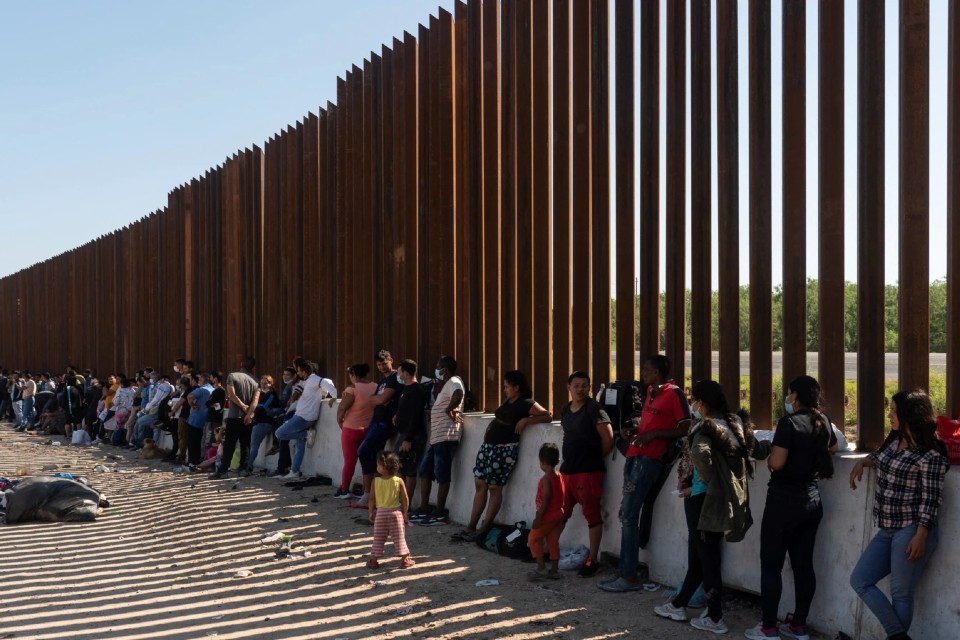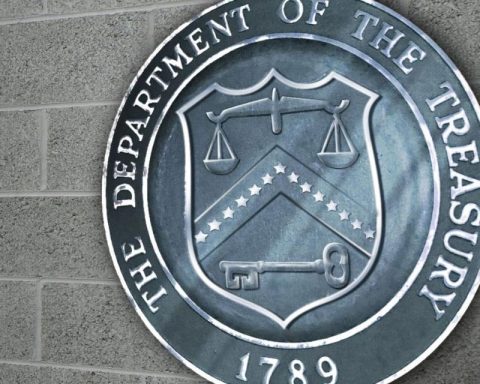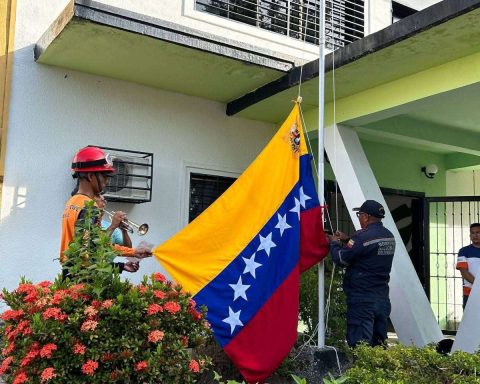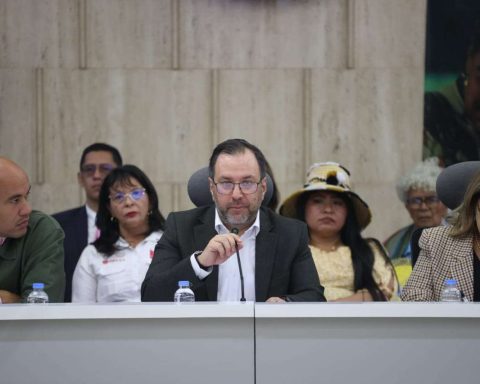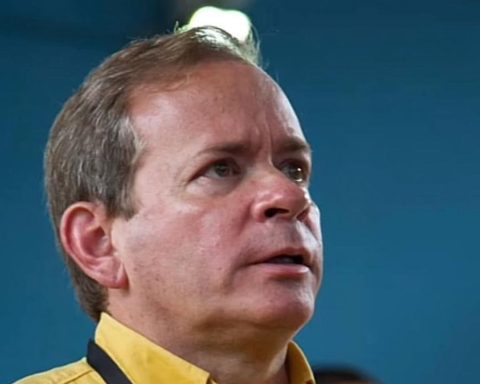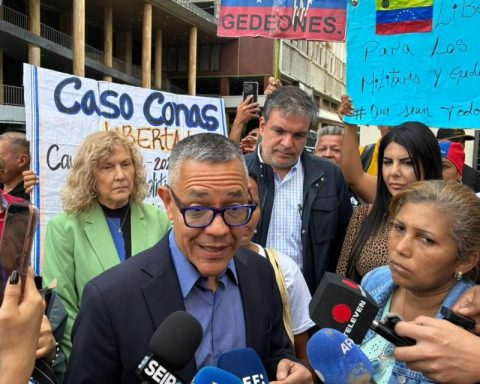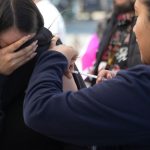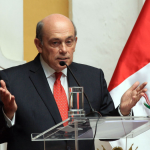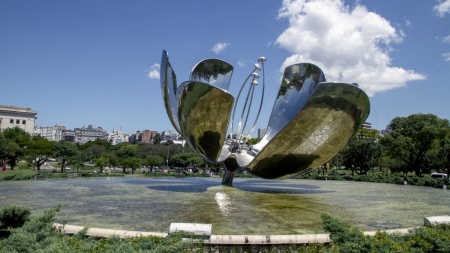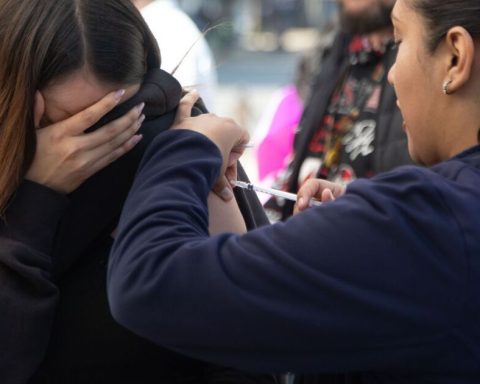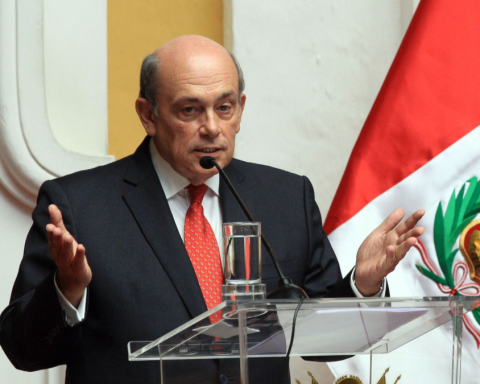In Panama, as in Costa Rica, Honduras, Guatemala and of course in Mexico, there are now thousands of Venezuelans stranded, some still with the purpose of reaching and crossing the US border, others trying to obtain resources to undertake the return. Hundreds of Venezuelans began to arrive in Caracas on flights that they themselves have paid for from Panama, while in Mexico and other countries the possibility of free air travel, of a humanitarian nature, is awaited, because thousands of migrants have been left destitute.
Inter Press Service | Humberto Marquez
Thousands of Venezuelans who crossed the horrific Darién jungle between Colombia and Panama, or who trudged through Central America and Mexico to reach the United States, have been trapped in countries that do not want them, unable to continue their journey and with almost no resources to return to your country.
Suddenly, on October 12, the United States government announced that it was stopping the admission of Venezuelans who informally crossed its southern border, it would return them to Mexico and, in return, it would open up to a limit of 24,000 quotas per year, for two years, to applicants to enter by air and under a new set of requirements.
“We were already inside the United States, when President Joe Biden gave the order, but they put us in a van and returned us to Mexico. It’s not fair, on the 12th we had already passed,” a young man who identified himself as Antonio, among the first sent back to the border city of Tijuana, told reporters through tears.
He was one of the approximately 150,000 Venezuelans who crossed the border between Mexico and the United States this year, to join the 545,000 who were already in US territory at the end of 2021, according to his authorities.
Raúl was in a group that took a week to cross the jungle, rivers, and mountains in Darién, dodging brush, rain, mud, hunger, thirst, and the threat of vermin and assailants. When he arrived at the indigenous village of Lajas Blancas in eastern Panama, he learned of the new US law that made his journey useless.
There, he told the Venezuelan opposition politician Tomás Guanipa, who visited the village this October, that “the journey is too hard, I saw people die, someone I couldn’t save because a river took him away, and it wasn’t worth it, now what I have to do is return, alive, to my country».
In Panama, as in Costa Rica, Honduras, Guatemala and of course in Mexico, there are now thousands of Venezuelans stranded, some still with the purpose of reaching and crossing the US border, others trying to obtain resources to undertake the return.
They fill the shelters where they are received, often overloaded and with few resources to attend to them, sometimes they sleep on the streets, or they are seen walking and begging for food or some money, abruptly cutting off the dream of coming to live and work legally in the United States. Joined.
That longing was fueled by the fact that the United States made it more flexible for Venezuelans to grant them asylum, as part of their confrontation with the government of President Nicolás Maduro, whom they consider illegitimate.
In addition, it established a protection statute that temporarily allows the stay and work of Venezuelans who arrive in its territory.
Venezuela has experienced an economic and political crisis in the last decade that, with the impoverishment of the population, produced the largest exodus in the history of the hemisphere: according to United Nations agencies, 7.1 million people have left the country, a quarter of its population.
And now that?
In the immediate term, those who were on their way are left in limbo and now they must return to the country, where many sold everything from their clothes to their homes to pay for the risky journey.
Hundreds of Venezuelans began to arrive in Caracas on flights that they themselves have paid for from Panama, while in Mexico and other countries the possibility of free air travel, of a humanitarian nature, is awaited, because thousands of migrants have been left destitute.
There are entire families who were already migrants in other countries, such as Chile, Ecuador or Peru -where Lima is a city with a million Venezuelans-, but decided to leave those places in the face of a hostile environment or difficulties in keeping jobs or occupying decent housing. , in a general climate of inflation in the region.
This is the case that Héctor told journalists, who, with his wife, mother-in-law and three children, invested almost 10,000 dollars in tickets from Chile to the Colombian island of San Andrés, in the Caribbean, from there by boat to Nicaragua, and traveled by land to that in Guatemala they were surprised by the US government’s announcement.
Now, in contact with some relatives in the United States, he discusses the possibility of returning to the country he left three years ago for Chile, or trying to continue, waiting for another option to enter his desired destination.
Also in the immediate term, the United States registers that the crossings or attempts to cross its border clandestinely have decreased significantly since October 12.
Among the justifications for its measure on that date, Washington said that it sought to combat human trafficking and other crimes associated with irregular migration, and discourage dangerous border crossings in Darien.
According to data from the Panamanian government, between January and October 15 of this year, 184,433 irregular migrants in transit from the jungle arrived in its territory, of which 133,597 were Venezuelans.
After his return to the country on Tuesday the 25th, Guanipa assured IPS that at least 70% of the migrants who crossed the so-called Darién Gap in the last 12 months were Venezuelans, along with other Latin American, Caribbean or African migrants.
And, after collecting testimonies of the terrible journey, he asked his compatriots “for no reason to risk their lives” in that stretch that is the inhospitable gateway from South America to the Central American isthmus.
The Venezuelan government has included the migratory movement and the situation in the Darién in the political and media confrontation that it has with the United States, it considers that the numbers of migrants are large and affirms that, on the contrary, more than 360,000 compatriots have returned to the country since 2018.
Officials from United Nations agencies and international humanitarian organizations consider that given the persistent crisis in Venezuela the migratory flow will continue, for which they ask host countries for rules and mechanisms that facilitate the insertion of migrants in their communities.
If in the United States they have slammed the door on ordinary migrants, in countries such as Chile, Ecuador, Peru, Colombia, Mexico and some of Central America, new rules are being prepared to modify the policy of helping Venezuelans.
For example, Ecuador modified the Human Mobility Law to increase the grounds for deportation, such as “representing a threat to security”, and Colombia -the largest host country for its neighbors- eliminated the office for care and socioeconomic integration of the migrant population.
Panama will require a visa for those who return from Central America or Mexico, Peru is working to change the regulations for the migrant population and the Chilean government, which in the past expelled hundreds of migrants on successive flights, announced that it will take measures to protect itself from the unwanted immigration.
Of the 7.1 million Venezuelans as of September registered as migrants by UN agencies, the vast majority of them leaving the country since 2013, almost six million were in neighboring Latin American and Caribbean countries.
Entire families have not only sought the North, in the United States or Europe, but have also traveled thousands of kilometers, on unprecedented trips in their lives, with stretches by bus but often on foot, through clandestine jungle passes or cold mountains, to reach to Brazil, Colombia, Ecuador, Peru, Argentina or Chile.
Others try their luck on neighboring hostile Caribbean islands, and dozens lost their lives when crowded boats capsized as they tried to reach safe shores.
Given the explosive nature of the phenomenon, the United Nations Refugee Agency (UNHCR) and the International Organization for Migration (IOM) established a platform for assistance programs for migrants in the region and for host communities, which coordinates a former Guatemalan vice president, Eduardo Stein.
Of their budget for 2022, based on offers from donor countries and institutions, for 1.7 billion dollars, they have only been able to collect 300 million, in another sample of Venezuelan migrants they have ceased to have a leading role on the international stage.
read the report full of ips here.
Post Views:
254
